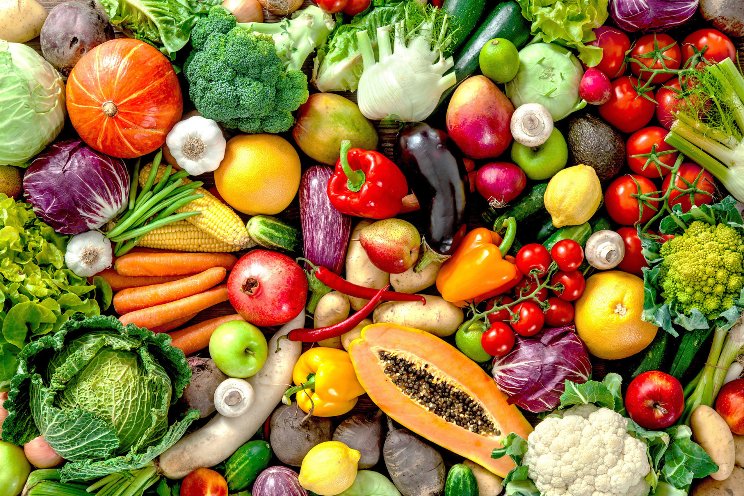|
As part of its strategic open innovation approach global life science company Bayer has advanced two initiatives with external partners to bring forward genome editing in vegetables. Bayer and South-Korean biotech company G+FLAS have entered into an agreement to collaborate on developing genome-edited tomato varieties that are nutritionally enhanced with vitamin D3. Vitamin D deficiency is a widespread issue globally, particularly in countries where winter sunlight is limited. It affects an estimated billion people worldwide and can lead to a range of health issues including rickets.
“Bayer is committed to achieving ‘Health for All, Hunger for None’. As we work toward this mission, we are proud to address a widespread nutrition problem and to support a healthy diet through cutting-edge technology. The collaboration leverages G+FLAS’ genome editing technology and Bayer’s proprietary tomato germplasm,” said JD Rossouw, Head of Vegetables Research & Development at Bayer during the World Seed Congress in Rotterdam where the industry gathers from May 27-29.
Part of the agreement is also the ambition to develop seeds for a broader variety of tomato products using genome editing. The technique allows to make changes to a plant’s genome that could also occur in nature or through conventional breeding, but in a more precise and faster way. “Modern breeding technologies, such as genome editing, can provide health benefits and resilience to a changing climate. It is an important new technology in a breeder’s toolbox, and we anticipate it being a part of our pipeline moving forward,” said JD Rossouw.
“Bayer is deeply attuned to what consumers are seeking: Foods that are not only rich in nutrients but also delightful in taste. Our commitment is to deliver on these expectations, which, in turn, provides significant benefits throughout the value chain and enhances the competitiveness of our growers," stated Ruth Mathieson, Global Head of Strategic Marketing at Bayer Vegetable Seeds. “We are keenly aware of the widespread issue of nutritional deficiencies in diets today. Actively working to bridge this nutritional gap is a driving force behind our growth and innovation strategy.”
Bayer obtains license to genome edited leafy greens from Pairwise
The importance of Bayer’s strategic open innovation approach has already been proven, now most recently through a new licensing agreement with US-based pioneering food and agtech startup Pairwise. Bayer has acquired a license from Pairwise that grants rights to work with and commercialize Pairwise’s genome edited mustard greens. These are a mix of colorful leafy greens with a unique, fresh flavor and higher nutrition compared to lettuce, achieved through genome editing. They were the first gene-edited food introduced to the North American market.
“This agreement and its focus on genome-edited produce made a substantial contribution to our open innovation approach. We’re excited to partner with Pairwise on their innovative leafy greens, which deliver a new, great-tasting salad option with high nutrition value,” said JD Rossouw. “The latest deal creates value beyond just selling a product, as it also comes with rights to use the knowledge, intellectual property, and technology going forward.” The license includes commercialization rights for the varieties developed by Pairwise and rights to develop new varieties.
Bayer launches open innovation platform for genome editing in vegetables
The collaborations with G+FLAS and Pairwise are an example of a crucial part of Bayer’s innovation strategy: combining Bayer’s leading Research & Development capabilities with knowledge and ingenuity from experts outside the company. As part of this, Bayer has now started another open innovation platform with a focus on genome editing in fruits and vegetables.
“Great innovations need great minds and the power of many. This is why we are seeking to partner with academic researchers and companies to develop new fruit and vegetable products that have increased nutritional content, positive environmental impact, or enhanced consumer appeal by harnessing the speed and precision of genome editing and new breeding techniques,” said JD Rossouw.
More information on this program can be found here.
About Bayer
Bayer is a global enterprise with core competencies in the life science fields of health care and nutrition. In line with its mission, “Health for all, Hunger for none,” the company’s products and services are designed to help people and the planet thrive by supporting efforts to master the major challenges presented by a growing and aging global population. Bayer is committed to driving sustainable development and generating a positive impact with its businesses. At the same time, the Group aims to increase its earning power and create value through innovation and growth. The Bayer brand stands for trust, reliability and quality throughout the world. In fiscal 2023, the Group employed around 100,000 people and had sales of 47.6 billion euros. R&D expenses before special items amounted to 5.8 billion euros. For more information, go to www.bayer.com.
Forward-Looking Statements
This release may contain forward-looking statements based on current assumptions and forecasts made by Bayer management. Various known and unknown risks, uncertainties and other factors could lead to material differences between the actual future results, financial situation, development or performance of the company and the estimates given here. These factors include those discussed in Bayer’s public reports which are available on the Bayer website at www.bayer.com. The company assumes no liability whatsoever to update these forward-looking statements or to conform them to future events or developments.
|

